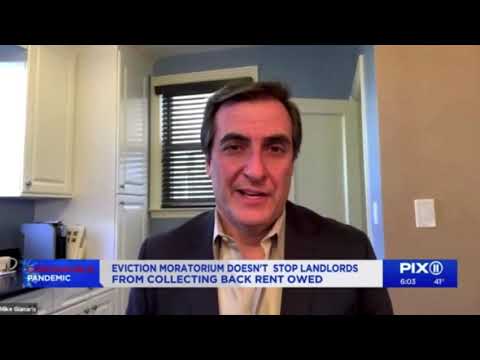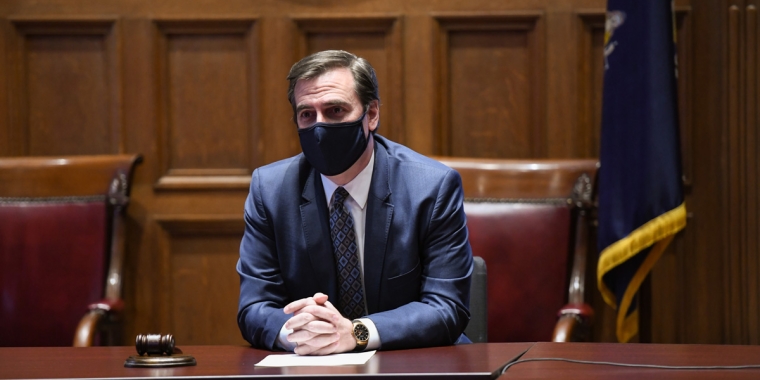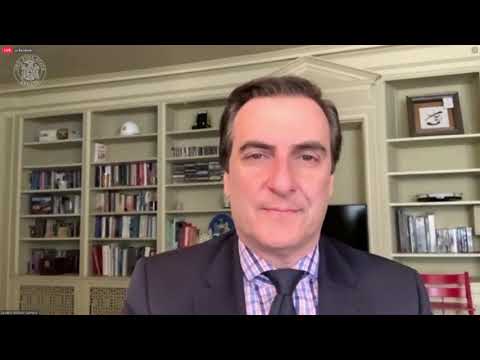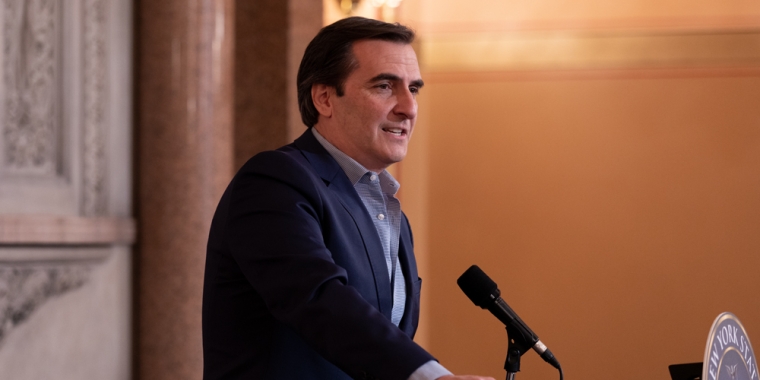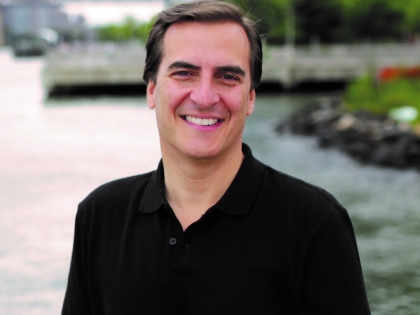
Newsday: As Cuomo's billionaire panel seeks to 're-imagine' NY, critics flag concerns

ALBANY — Gov. Andrew M. Cuomo last week enlisted billionaire philanthropists to “re-imagine” New York’s economy, health care system, mass transit and education in light of hard lessons learned during the COVID-19 virus.
While the panel's charge is bold, the agenda is vague. From the little said so far, its first priorities likely will be to solidify the advances in telehealth during the virus, expand broadband internet service that is sketchy in some areas, and bolster online education.
But the idea of billionaires rethinking how the state operates immediately attracted political and labor opposition. Labor worried that Cuomo’s order to “think outside the box” will benefit tech companies and trigger cuts in funding for schools and social services, while automation would cost jobs. They also say the economy’s problem isn’t a lack of cutting-edge technology, but the gulf between the poor and wealthy.updating
“Successful businessmen — their goals are antithetical to governing and to turn it over to unelected individuals is not good for government and not good for democracy," said Assemb. Deborah Glick (D-Manhattan).
Cuomo’s panel has already had its first discussions.
“As we begin reopening parts of the state and re-imagining New York in the new normal, we should take this moment in history to use what we've learned and actually build our systems back better," Cuomo said last week. “I don't want to replace what we did — I want to set the bar higher and actually improve our situation so we are prepared for the future."
That game plan will be drawn up by a 15-member commission headed by some boldfaced names, including Microsoft co-founder Bill Gates, now of the Bill and Melinda Gates Foundation; and Eric Schmidt, former Google CEO and executive chairman and founder of Schmidt Futures, as well as Michael Dowling, chief executive of nonprofit health-care network Northwell Health.
The backdrop includes double-digit unemployment, deep losses on Wall Street, shuttered businesses and a projected $10 billion deficit for the state along with severe revenue losses for local governments.
“This could be the proverbial straw that breaks the camel’s back,” said Douglas Eugene Lynch, a professor at the University of Southern California’s School of Education whose background focuses on innovation and includes economic research. “These economic implications are the constraints that may force real systemic reasons to innovate because the constraints will be such that no episodic (short term) ‘pivot’ will work. We simply may not be able to afford as a country to go back to the way things were.”
Cuomo's panel has had at least one teleconference so far, but much work lies ahead.
“The first priorities of what we’re trying to do are focused on telehealth, remote learning and broadband,” Schmidt said Wednesday. “We can take this terrible disaster and accelerate all of those in ways that will make things much, much better. The solutions that we have to come up with have to help the people most in need. People are in different situations throughout the state. We need to consider all of them and not pick one or the other.”
He said the key, however, is to find bold solutions as soon as possible, seizing the moment for change provided by the virus emergency.
“My own view is that these moments are a chance to revisit things that are not getting enough attention, and we have systems that need to be updated and need to be reviewed,” Schmidt said to Cuomo at a news conference. “My commitment is to make this period, this sort of awful period, to be a period as you described in Long Island where New York State, New York City, everyone comes out stronger.”
Criticism of the panel came within hours of Cuomo’s announcement on Tuesday.
“If we want to re-imagine education, let’s start with addressing the need for social workers, mental health counselors, school nurses, enriching arts courses, advanced courses and smaller class sizes in school districts across the state,” said Andy Pallotta, president of the New York State United Teachers union, a powerful lobbying force in Albany. “Let’s secure the federal funding and new state revenues through taxes on the ultrawealthy that can go toward addressing these needs. And let’s recognize educators as the experts.”
The liberal Working Families Party fears the panel will call for massive budget cuts to shore up deficits and reduce public spending in the long term.
“We don’t need billionaires to ‘re-imagine’ our schools and hospitals — we need our leaders in Albany to demand billionaires pay their fair share in taxes,” said Sochie Nnaemeka, director of the party.
Ron Deutsch of the labor-backed Fiscal Policy Institute said Cuomo's panel is "not only tone-deaf, it's dangerous … What we really need from New York’s billionaires is for them to pay their fair share in taxes to ensure we don’t have to make draconian cuts to services people desperately need to balance our budget.”
Cuomo's past efforts to work with wealthy business icons have faced stiff resistance and little success in Albany, including Gates' support of a uniform Common Core in schools and Cuomo's "failed upstate economic development programs," said E.J. McMahon of the Empire Center think tank.
"The governor seems to be a sucker for high tech and tech billionaires," McMahon said.
The backlash against billionaires influencing state policy at a time when the state is veering left has crossed party lines.
“Putting multibillionaire Bill Gates in charge of ‘re-imagining’ education is an outrageous affront to our education system, parents and school children,” said state Republican chairman Nick Langworthy. “Our kids are not an experiment for a bored multibillionaire.”
Any measures the panel and Cuomo want to implement would likely need approval by the Legislature, and that may be tough slogging, too.
“I’m sure these billionaires are not stupid, but that doesn’t mean they have the best interests of everyday New Yorkers at heart,” said Senate Deputy Majority Leader Michael Gianaris (D-Queens). “And what’s worse, they are not accountable to the public … these are not people who should determine for us how best to provide services to everyday New Yorkers.”
